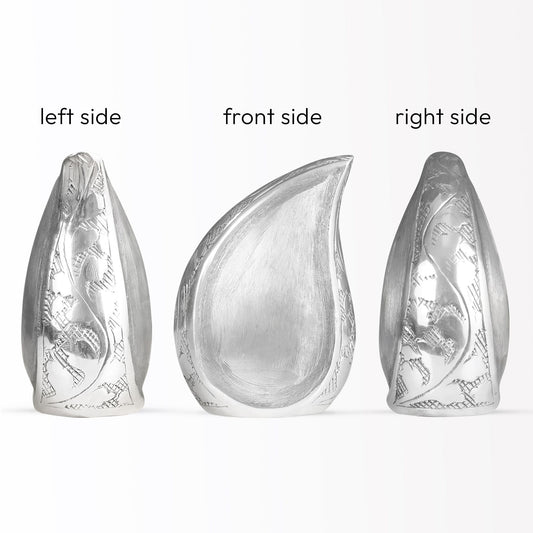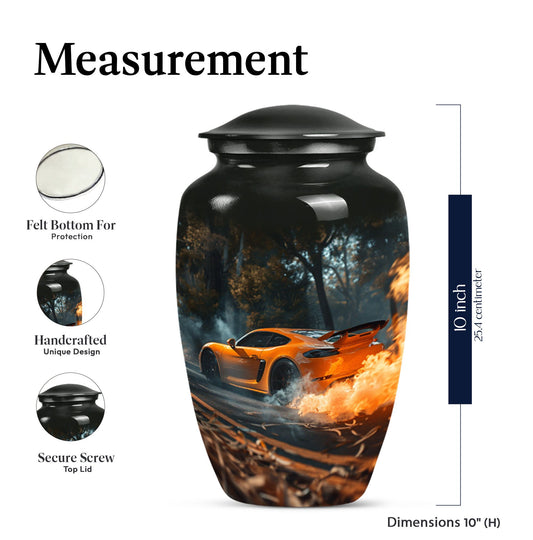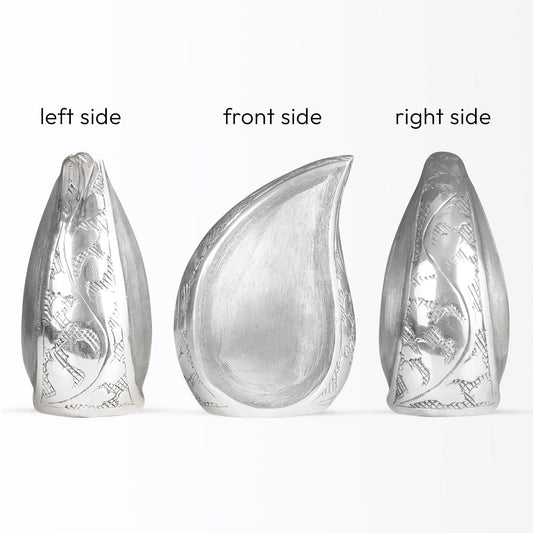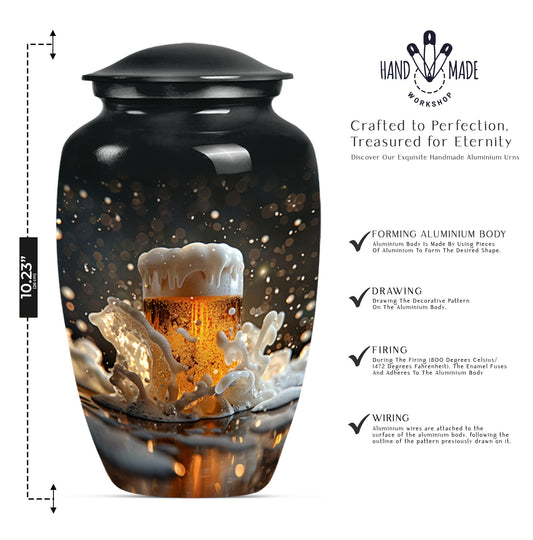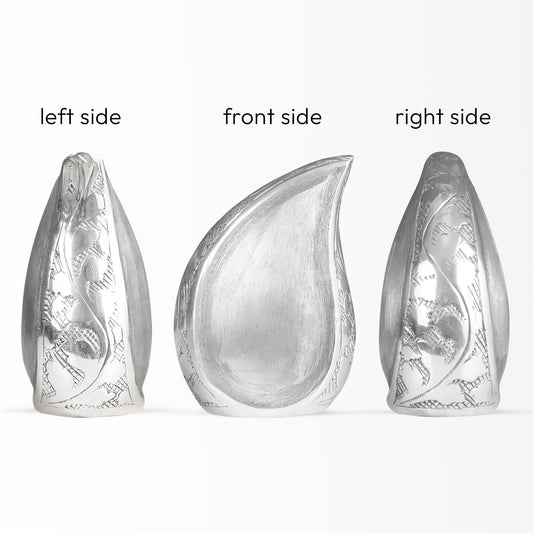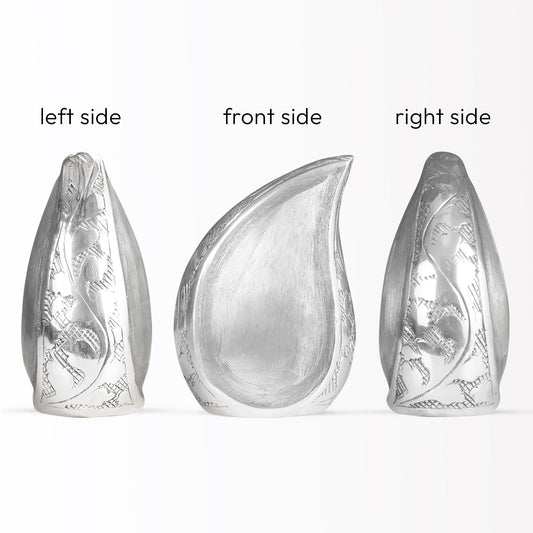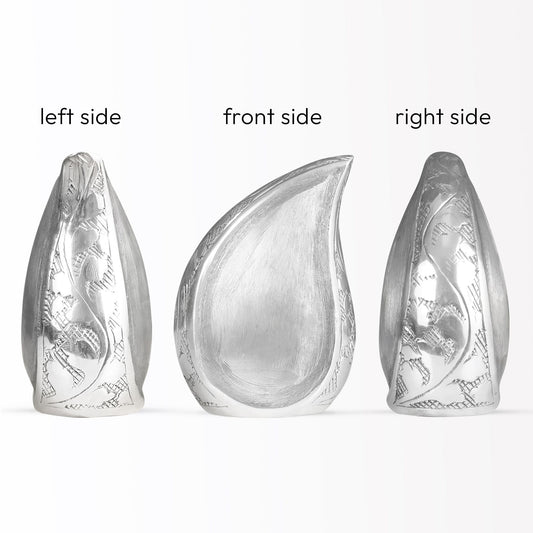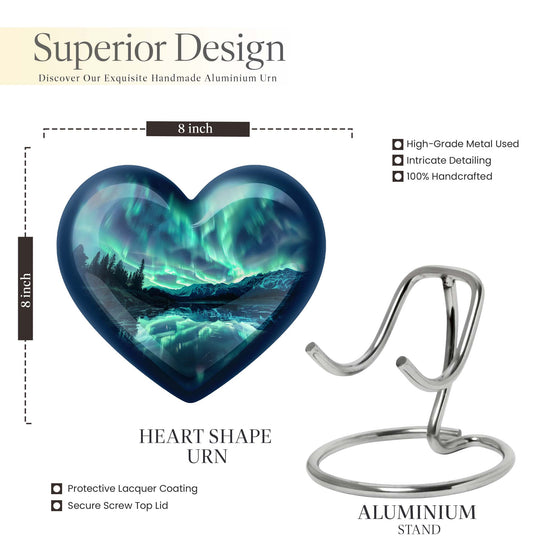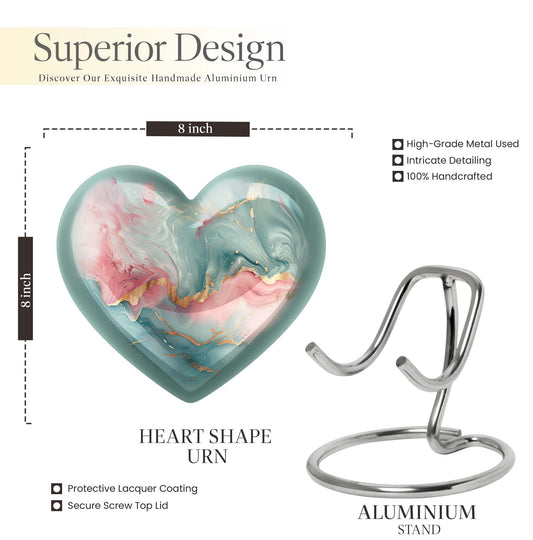Popular Urns
Comprehensive Guide Of New Jersey's Cremation Laws

This paper elaborates cremation law in New Jersey in comprehensive provisions of how it should be asked for, sanctioned, and carried out holding every single patient's wish, with well kept documents and legalized. A brief Overview goes like this:
1. Consent and Authorization
Who can give the permission? In the case of New Jersey, normally the order of next of kin gives the legal authority to perform cremation. The next of kin get authority after the deceased gives any form of written instruction.
For instance, where a person has left clear instructions like a will or a funeral directive, this sets precedence. If there was no prior form of instruction from the deceased, then by succession of law, authorization comes with the closest available relative-the spouse, child, parent, or brother and sister.
Written Consent: Legal authority has to agree in writing by signing a court affidavit cremation authorization.

A waiting period and, or permits can't make a cremation without someone providing written consent.
2. Permits Needed: Cremation demands that there be a death certificate and a cremation permit from the local registrar. The permit ensures that there are no suspicious circumstances surrounding the death and that all other paperwork is completed.
Autopsy with Medical Examiner Approval: It would require the approval of a medical examiner when it occurs suddenly, violently, or suspiciously; that was usually after the conducting of an investigation or an autopsy.
3. Processing the Bodies
Identification: Identification of remains must precede cremation. There needs to be an assigned tag or system that keeps tracking the deceased from death all the way to completion during the cremation process.
Procedure: Cremation is only authorized in licensed facilities. A licensed facility has to abide by all the state health and environmental regulations.
Ashes: The one agreeing to the cremation should decide on the type of storage the ashes can get, since ashes may be either left in the urn or buried as specified by the family's preference and wish by the deceased prior to death.
4. Funeral Director Role
This would still be under an authorized New Jersey funeral home, which will take the paperwork and properly transport a body to cremation among other services to direct family to ash options.
5. Unclaimed Ashes Management
If the cremated ashes are not taken after a year, they might be interred or disposed of at the discretion of the law in New Jersey. They should attempt contacting the family and wait throughout the year before they can go ahead to do so.
6. Environmental and Health Regulations
New Jersey crematories should operate according to the requirements of the state's environmental and emission standards. They are periodically inspected to discuss all the safety and environmental concerns of the buildings.
New Jersey cremation law respects the final will of the deceased. The procedure is strictly monitored in such a way that it was transparent and not biased one. Proper permission, waiting period, and proper handling of remains are the core issues to ensure that cremation was conducted legally.


















